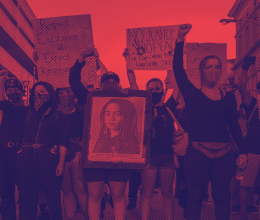
This booklet addresses what rights you have when you are stopped, questioned, arrested, or searched by law enforcement officers. This booklet is for both citizens and non-citizens, with extra information for non-citizens.
This booklet tells you about your basic rights and is not a substitute for legal advice. You should contact an attorney if you have been arrested or believe that your rights have been violated.
DOWNLOAD A PDF OF THE POCKET CARD
DOWNLOAD A PDF OF THE SPANISH VERSION
AT THE OUTSET, WE MUST SAY:
- The police have a lot of power. The safest way to interact with police is to avoid interacting with police in the first place.
- If you must interact with a police officer, we recommend the following:
- Stay calm.
- Don’t run.
- Do not obstruct the officer.
- Do not lie or give false documents.
- Keep your hands where the police can see them.
- Do not rely on lawsuits. Lawsuits are costly, time consuming, and are unlikely to be successful in bringing you justice.
A complete PDF of this booklet is at the bottom of this page.
